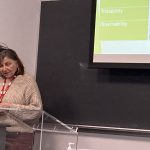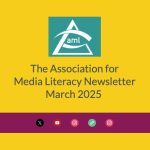Teaching the Machine
Thanks for teaching the Internet how to make our lives better. Organizing the web is lot of work and seriously, when was the last time someone thanked you for it? Well I will. Nicely done.
Media literacy often directs its tools toward decoding the message and at other times toward the audience’s interpretation of that message. The rise of more active audiences (think citizen media-makers, bloggers, commenters, sharers, uploaders, remixers, etc) has re-tooled media literacy toward a more participatory media environment.
Enter Michael Wesch. This anthropology professor is a participatory researcher on all things on-line. He and many of his students have started to encircle the entire Internet for their field of study. One of Wesch’s videos (he has many) introduced me to the practice of teaching the web (not about it, but actually shaping it’s function) in his video: Web 2.0: the machine is us/ing us.
Mastering the power of form and content, Wesch skillfully shows us (more powerfully than just telling us) how simply being on-line is an educational moment – for the Internet.
After close observation, he re-defines what text is, what it can do, how the web is different than other mediums, and how we regularly write the next steps for the net’s development. He leaves us thinking how the web will cause us re-think copyright, authorship, identity, ethics, aesthetics, rhetorics, governance, privacy, commerce, love, family, and ourselves. Plenty of conversation starters for your classroom.
This post will be the start of many (by me and hopefully others) on how we position ourselves (or are positioned) in the media environment as a process of critical reflection and action.
After watching this video, many questions can be explored such as:
What digital literacies are needed to activity and critically participate on-line?
Who owns the Internet, makes its content, or creates its value in society?
Who are the major players for the Internet and what types of control, accountability, or responsibility to they each have?
Which media concepts (like ownership, genre, bias, and audience perhaps) become less useful in these on-line exchanges and which concepts (perhaps representation, context, role, access, collaboration) will become more useful in the future?
Warning: clicking on any of the above links or videos will result in further teaching of the Internet. So will leaving a comment, linking to this blog, or sharing this post on other sites and services. Every choice shapes the web in another direction toward an unknown infinity. What kind of web do you want? Please choose wisely.
Paul Baines is an Executive Member of the AML and teaches at Centennial College in Scarborough, Ontario.


